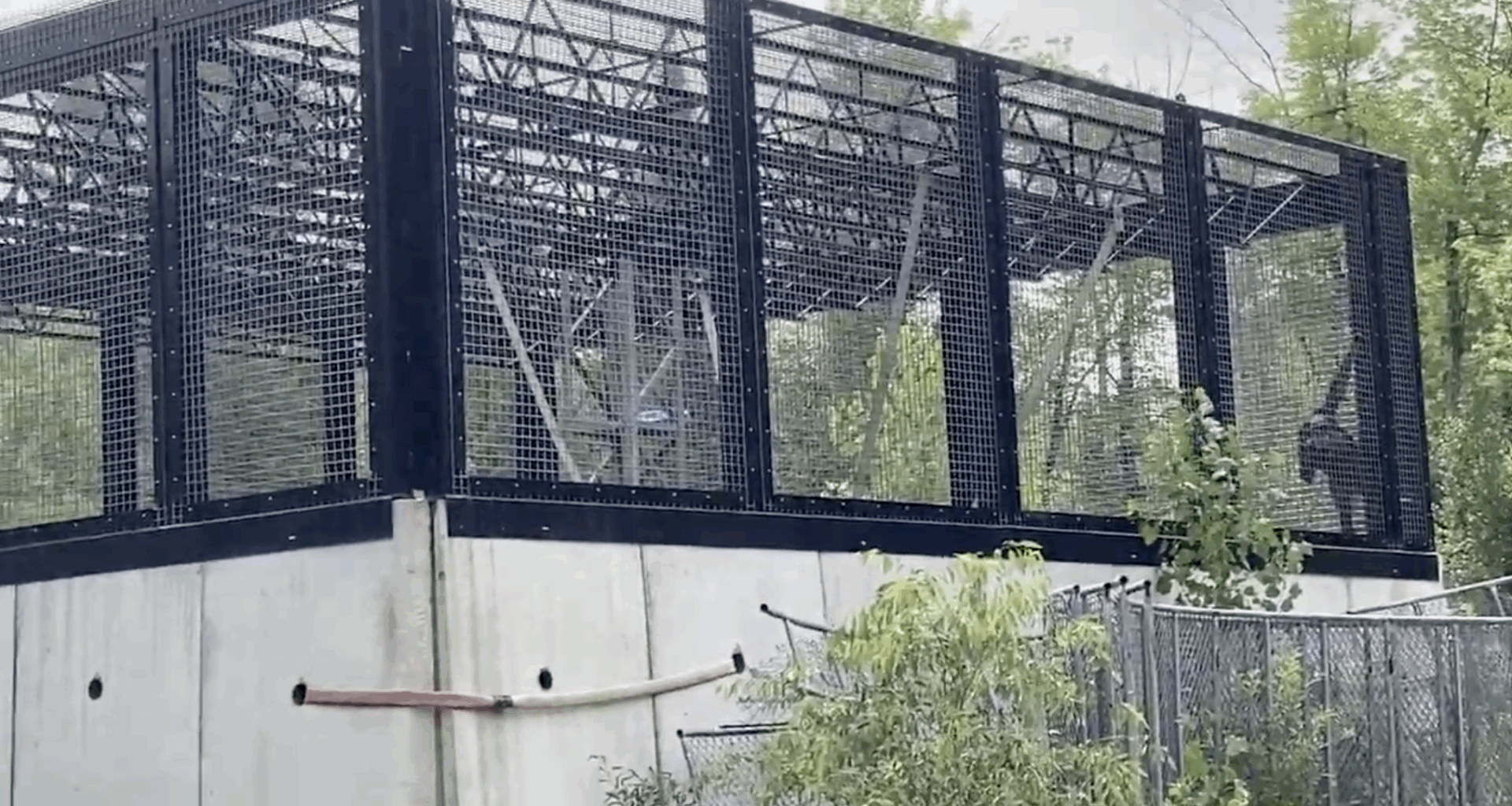The DeYoung Family Zoo in Wallace is a private zoo with hundreds of animals
A lawyer will argue before the Michigan Court of Appeals on Tuesday that the UP zoo should have to prove its confinement of chimpanzees does not violate the animals’ right to liberty
This is the first hearing in Michigan on whether an animal’s confinement is lawful
Do chimpanzees have some of the same rights as humans?
One animal rights group thinks so.
A lawyer will argue before the Michigan Court of Appeals on Tuesday that a privately owned Upper Peninsula zoo should have to prove to the courts that its confinement of seven chimpanzees is not in violation of the animals’ right to liberty.
The zoo in question is the DeYoung Family Zoo in Wallace, which is described on its website as a place where visitors “will love the natural setting filled with amazing animals from around the world.”
The zoo did not respond to Bridge Michigan’s requests for comment.
What’s happening on Tuesday is a hearing, not a trial, and representatives from the zoo do not need to attend.
In 2023, the Nonhuman Rights Project filed a complaint in the 41st Circuit Court in Menominee County saying chimpanzees should be considered autonomous beings — or persons — whose confinement must be justified by the zoo. Judge Mary B. Bargland dismissed the complaint, saying chimpanzees aren’t human.
The Nonhuman Rights Project appealed.
Related:
On Tuesday, their lawyer will be given 15 minutes to make the case to the Court of Appeals that the complaint shouldn’t have been thrown out because a court should decide whether someone’s imprisonment is justified.
“We need to move beyond putting bars in front of animals as a society and try and work in a society that respects the autonomy of other species,” said Jake Davis, the senior staff attorney with the Nonhuman Rights Project who will argue before the appellate court.
A Michigan organization called Attorneys for Animals, the Animal Law Section of the State Bar of Michigan, and two professors representing the Animal Law Project at Michigan State University College of Law stated in a court filing that there is legal precedence for considering animals persons.
An expert declaration from the late, famous chimpanzee researcher Jane Goodall is also included in court filings from the Nonhuman Rights Project.

“There is ample proof from studies of chimpanzee behavior, both in the wild and in captivity, that chimpanzees are autonomous beings with a highly complex cognitive nature, which can be illustrated by their ability to perform complex tasks,” Goodall wrote in her declaration.
Davis, the lawyer, said the chimpanzees at DeYoung Family Zoo are not given enough stimulation, they’re not able to meet their social needs, and because they are held inside during Michigan winters, they’re not given the fresh air and sunshine they need to thrive.
“They’re suffering, as our experts tell us, devastating physical and psychological harm,” he said. “They’re likely exhibiting what’s called stereotypical behaviors. That’s uninhibited rocking and swaying because basically your mind is going crazy.”
Sign up for our outdoors newsletter
Want more coverage like this delivered directly into your inbox? Sign up for the Bridge Michigan Outdoors newsletter here.
The Nonhuman Rights Project provided Bridge with footage that they said is from the DeYoung Family Zoo. It shows a chimpanzee rocking back and forth repeatedly for at least 45 seconds.
If the Nonhuman Rights Project is successful on Tuesday, the Court of Appeals could issue an order to show cause. That would mean the zoo, at a future date, would need to justify its confinement of the chimpanzees in a hearing.
Tuesday’s hearing is the first in Michigan on whether an animal’s imprisonment is lawful.
The Nonhuman Rights Project previously secured show cause orders in New York, one involving chimpanzees Hercules and Leo and another involving Happy the elephant. The judge overseeing the hearing for the chimpanzees did not grant their release but the university holding them ultimately released them to a sanctuary, which was the Nonhuman Rights Project’s goal. Happy’s case was argued before New York’s highest court. The Nonhuman Rights Project lost the case but two judges wrote lengthy dissenting opinions, which Davis said was a win in itself.
This is not the first time the DeYoung Family Zoo has ended up in a legal battle. In 2016, the People for the Ethical Treatment of Animals Inc. (PETA) issued a press release saying the organization intended to sue the zoo because it had violated the Endangered Species Act by how the zoo held two chimpanzees, Louie and Tommy.
Harold “Bud” DeYoung, a co-owner of the zoo at the time, filed a countersuit to stop PETA from suing. DeYoung’s suit said the zoo had legally obtained the chimpanzees and were not violating the Endangered Species Act. It alleged PETA had put out false and defamatory information about the zoo that resulted in threats, loss of income and other damages. The zoo ultimately dropped the suit.
DeYoung died in 2024. Prior to his death, he and his wife, Carrie Cramer, were featured in a 2011 National Geographic documentary called “My Life is a Zoo.” According to a description on Amazon, the documentary chronicles the couple’s life maintaining a “struggling small zoo” with over 400 animals.
Related
Thank you to our Bridge Michigan Outdoors sponsors
Bridge Michigan Outdoors is made possible by generous financial support from our sponsors. Please visit the About page for more information and to subscribe to Bridge Michigan Outdoors. Interested in becoming a sponsor? Contact Emma Carr.
Republish This Story

